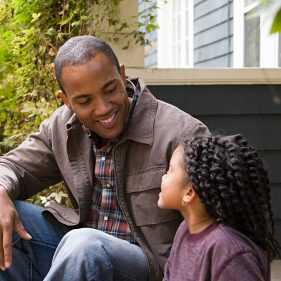Teach your child that the following rules apply to everyone, and they can say "no" to anyone who wants to break a rule. Let them know that if someone breaks a rule:
- It's never your fault.
- It's never too late to tell.
- Tell a trusted adult. Keep telling until someone listens to you.
- It's okay to tell me. I'm glad you told me and want to help keep you safe.
The Rules:
Talking to kids about safety, feelings & healthy boundaries from a young age helps them recognize when something feels uncomfortable or scary & gives them ways to speak up if they are abused. Click the video to see our YouTube playlist with the latest virtual children's book readings with CAC staff. You can also download a list of book recommendations below.

